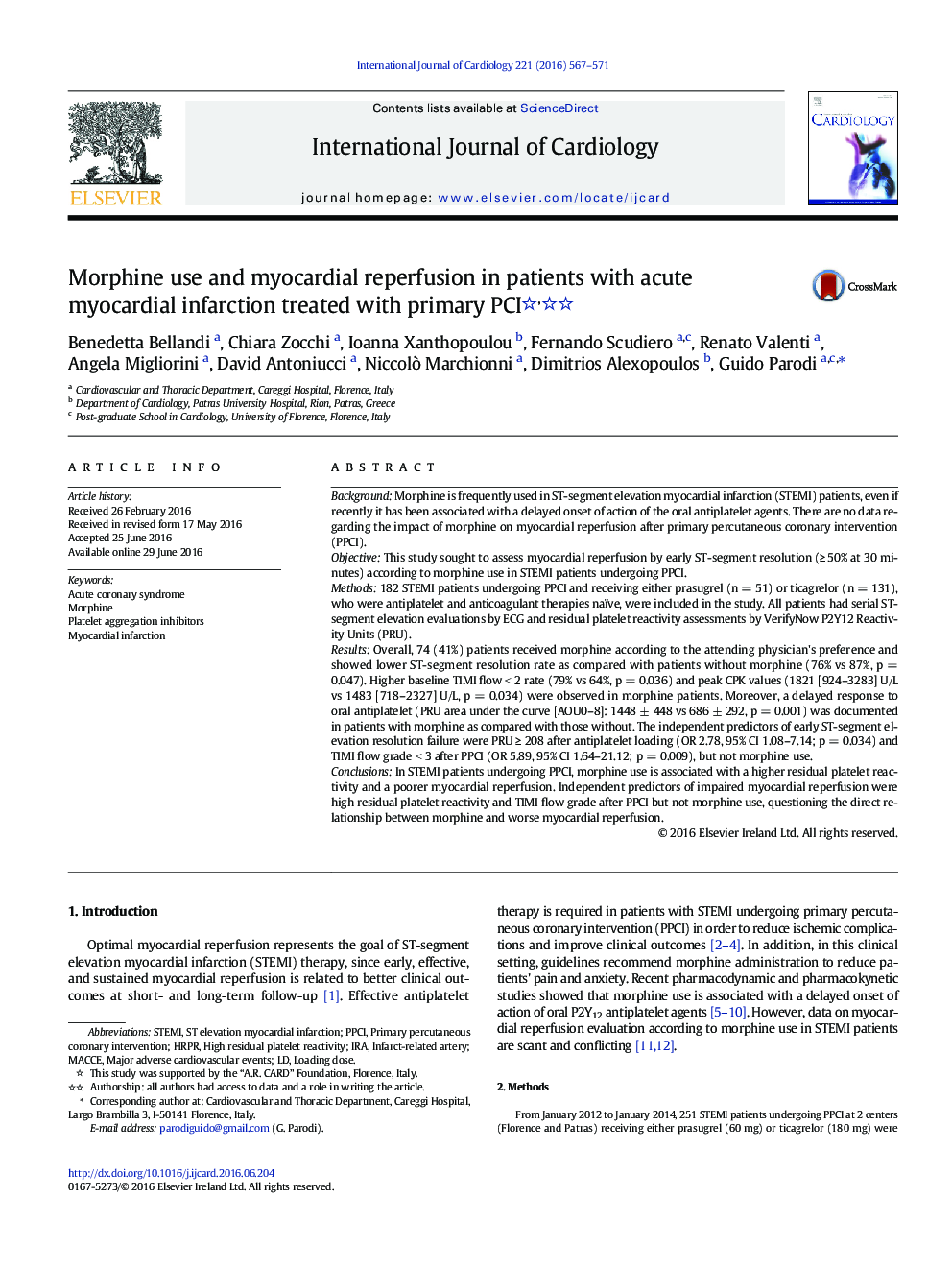| کد مقاله | کد نشریه | سال انتشار | مقاله انگلیسی | نسخه تمام متن |
|---|---|---|---|---|
| 5963050 | 1576127 | 2016 | 5 صفحه PDF | دانلود رایگان |

BackgroundMorphine is frequently used in ST-segment elevation myocardial infarction (STEMI) patients, even if recently it has been associated with a delayed onset of action of the oral antiplatelet agents. There are no data regarding the impact of morphine on myocardial reperfusion after primary percutaneous coronary intervention (PPCI).ObjectiveThis study sought to assess myocardial reperfusion by early ST-segment resolution (â¥Â 50% at 30 minutes) according to morphine use in STEMI patients undergoing PPCI.Methods182 STEMI patients undergoing PPCI and receiving either prasugrel (n = 51) or ticagrelor (n = 131), who were antiplatelet and anticoagulant therapies naïve, were included in the study. All patients had serial ST-segment elevation evaluations by ECG and residual platelet reactivity assessments by VerifyNow P2Y12 Reactivity Units (PRU).ResultsOverall, 74 (41%) patients received morphine according to the attending physician's preference and showed lower ST-segment resolution rate as compared with patients without morphine (76% vs 87%, p = 0.047). Higher baseline TIMI flow < 2 rate (79% vs 64%, p = 0.036) and peak CPK values (1821 [924-3283] U/L vs 1483 [718-2327] U/L, p = 0.034) were observed in morphine patients. Moreover, a delayed response to oral antiplatelet (PRU area under the curve [AOU0-8]: 1448 ± 448 vs 686 ± 292, p = 0.001) was documented in patients with morphine as compared with those without. The independent predictors of early ST-segment elevation resolution failure were PRU â¥Â 208 after antiplatelet loading (OR 2.78, 95% CI 1.08-7.14; p = 0.034) and TIMI flow grade < 3 after PPCI (OR 5.89, 95% CI 1.64-21.12; p = 0.009), but not morphine use.ConclusionsIn STEMI patients undergoing PPCI, morphine use is associated with a higher residual platelet reactivity and a poorer myocardial reperfusion. Independent predictors of impaired myocardial reperfusion were high residual platelet reactivity and TIMI flow grade after PPCI but not morphine use, questioning the direct relationship between morphine and worse myocardial reperfusion.
Journal: International Journal of Cardiology - Volume 221, 15 October 2016, Pages 567-571